Russell Baker’s Pulitzer Prizer-winning memoir of his Depression era childhood, Growing Up (1981) offers a wonderful gateway to study the period between 1900 and 1945. There is no free online text for this book, but on this page, students will also find a map of key events with excerpts from the text as well as some additional resources featured below.
Plot Summary
- Chapters 1 – 4: Russell Baker opens his memoir by describing the challenges his mother is facing as she endures senility while recovering from a fall at a nursing home. Her living memories of the past then trigger his own memories of his childhood, which he begins to describe in great detail. However, Baker also pivots back to a reconstruction of his mother’s and father’s childhoods in early twentieth-century rural Virginia. He describes how they met and struggled to overcome various challenges as a young family.
- Chapters 5 – 9: Baker describes the death of his father from diabetes in 1930 and how the tragic circumstances which then affected his mother and his sisters. Ultimately, Russell’s mother Lucy brought him and his younger sister Doris to Newark, NJ to live with her brother and his wife. This was in the heart of the Great Depression during the early 1930s. Russell describes life in New Jersey during this period, from his perspective as a child and also through the letters of his mother and her new boyfriend, Oluf. Eventually, Lucy Baker decides to follow one of her other brothers, Hal, to Baltimore, bringing Russell and Doris with her to start a new life on their own.
- Chapters 10-12: The Bakers moved to Baltimore in 1937, and almost immediately their personal circumstances worsened. However, by 1939, Lucy Baker had remarried and their economic conditions finally stabilized. Russell Baker spends these three chapters describing various scenes from this period, during his teenage years, culminating with his mother’s marriage to Herb Orrison, a change he resisted at first.
- Chapters 13-18: The final chapters of the memoir cover Russell Baker’s education and struggle to go to college, his sometimes-comical experiences training to become a navy pilot, and finally his eventual marriage after World War II to Mimi Nash. Along the way, Baker offers a series of powerful snapshots of American political and cultural life, including the civil rights demonstration he witnessed after boxer Joe Louis defeated German fighter Max Schmeling in 1938 and the complexity of emotions he felt at the end of the war with the dropping of the atomic bombs on Japan.
Cast of Characters
IMMEDIATE FAMILY
Russell Baker (1925-2019): born in Morrisonville, Virginia; raised in Virginia, New Jersey and Baltimore; family nickname, Buddy; served in Navy Air Corps during World War II; became a journalist for the Baltimore Sun; married Mimi Nash
Benjamin Baker (1897-1930): Russell’s father; died of complications from diabetes
Lucy Elizabeth Robinson (1897- ?): Russell’s mother; remarried to Herb Orrison in 1939
Doris Baker (1927-? ): Russell’s sister
Audrey Baker (1930- ?): Russell’s sister
Mary Leslie Orrison (1940- ?): Russell’s step-sister
Ida Rebecca Brown (1861-1933): Russell’s grandmother on his father’s side
George Baker (1855-1907): Russell’s grandfather on his father’s side
Mimi Nash (1927- ): Russell’s wife; married in 1950
EXTENDED FAMILY AND FRIENDS
Baker Family: Uncle Irvey (oldest brother), Uncle Harry, Uncle Etch, Uncle Tom and Aunt Goldie (adopted Audrey), Uncle Harvey, Uncle Lewis, Uncle Miller, Raymond, Selba (Aunt Sister) and Uncle Harold (AEF veteran)
Morrisonville neighbors: Ep Ahalt (owned farm where parents met), Annie Grigsby (born in slavery)
Robinson Family: Uncle Allen and Aunt Pat (boarded Russell’s family), Uncle Hal (lumber business), Uncle Charlie (intellectual), Uncle Willie (California)
Friends and acquaintances: New Jersey… Oluf (mother’s boyfriend), Walter (bully), Frankie, Nino and Jerry (Italian friends); Uncle Jack (Aunt Pat’s brother), Baltimore … Mr. Fleagle (teacher); Charlie Sussman (Hopkins); Navy … T.L. Smith (“Total Loss”)
Additional Resources
Short profile of Russell Baker (Encyclopedia Virginia)
Russell Baker reviews books about Franklin Roosevelt (New York Review of Books)
1995 Commencement Address by Russell Baker (Connecticut College)
Mapping Russell Baker’s Baltimore (Baltimore Authors)
Image Gallery
Images courtesy of Penguin Group, Time Inc., Baltimore Sun, Library of Congress, National Archives and Wikipedia
Featured Videos
Here is an oral history interview with Russell Baker conducted in 2010 by the Loudoun (VA) Times-Mirror.

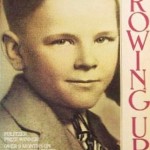
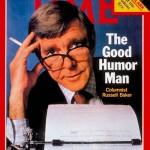

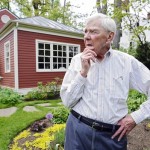

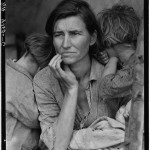
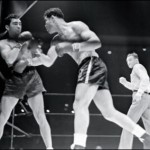
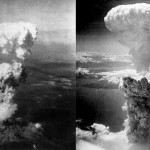
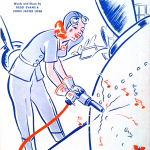
Ryan Fuscaldo
Russell Baker is able to capture the lives and stories of multiple people who lived through the Depression and other time periods through the dementia-caused flashbacks of his mother. For example, when his mother is not able to feed her family after the death of her husband, Russell’s father, she decides to move in with her brother, Allen, and his wife, Pat. This is significant because it shows the affects that the Depression had on families. Russell’s mother is not going to make much money as a schoolteacher; not only is she a woman, but wages are also very low because of the stock market crash. Because of this, she is forced to move in with her brother, who is making a decent living moving from job to job, in order to make ends meet for the sake of her children. Baker is emphasizing the impact that the Depression had on the people by giving examples of how his life was forced to change drastically.
Katie Gimbert
The introduction of the books and the first few chapters sets the scene of the memoir with Russell Baker’s history. He recognizes that in order for the reader to understand his life they need to understand the foundation it was built on.
Baker’s memoir has a constant conflict of power, and mainly one of women’s power. When describing his “lack of gumption,” as Russell’s mother put it, he likes to outline it with humor. As a child has mother seemed to be conflict about how he should strive to be more and take advantage of the “American Dream.” Russell’s mother, Lucy Robinson Baker, started him off by getting him a job selling local newspapers on the street.
Russell says that his sister Doris’ greatest “defect” was that she was born a girl and therefore her career is destined to only go as far as a nurse or a teacher. This family is based on a mother that “wanted he equality but also wanted to be a lady” in a blend of “20th century feminism and victorian romance” (28-29). Which leads me to the conclusion that some people have when they misunderstand the term “feminism” and call themselves “meninists” (or something similarly dumb to that idea) or women that simply say that they are anti-feminist. They don’t seem to understand that the basis for feminism is in political, social, and economic equality between the sexes. Lucy Robinson Baker embodies that because she believes in the equality that she has worked so hard for both in the home and in getting a college education. She wants the respect that these actions should have built for her in society.
Garret Cerny
After examining Russell Baker’s “Growing Up,” I was perplexed regarding its necessity within an American history class; however, upon reading the narrative of the life of young Russell and his experiences during a time of great historical significance, I was able to greater understand the book’s merits. In every history class I have ever taken there has been a giant textbook needed, sometimes as large as 1000 pages, and this book provided a nice change of perspective. Rather than listing every important date and person in bold faced font and mapping out every historical event, this book gave first person experience, albeit potentially exaggerated, of the lifestyle during the early to mid-20th century: even though we did not learn every fact about WWII, or the presidency of Roosevelt, or every idiosyncrasy of the time period, we were certainly capable of extrapolating vital information in order to map out meaningful historical outline of the struggle during the American depression.
In the final few chapters of the book, Russell describes his perspective on WWII and upon realizing that he will be needed to fight fascists like Mussolini and Hitler, he applies to enter the Navy Air Corps. The historical focus during these chapters may appear to emphasize the larger events of World War; however, the greater theme of women’s role persists throughout: specifically highlighted with Russell’s relationships and eventual marriage, and continued at the end of the book with Russell’s sick mother. Gender is a crucial topic throughout the book and when Russell encounters Mimi in chapter 16 his perception of women seems to change upon hearing her life story. In the last pages of the memoir, similar to the beginning of the book, Russell goes to visit his mentally ill mother. This time when he sees her she does not know who he is or why he is there and she turns away from him. This was an intense ending to Baker’s novel about growing up, considering Lucy Baker’s constant effort to inspire Russell to make something of himself. When he is finally able to live the life his mother wanted, she is no longer present mentally. This seems to speak to the depth of the depression in the United States and the idea that the treacherous climb out of debt and difficulty did not end, even for Russell, who made great strides toward economic and personal prosperity.
Penelope Bencosme
Russell Baker did a very good job at teaching the readers about historical events, but at the same time, sharing his personal regular life stories. Hence the memoir was not textbook style and because Baker is a very good writer, it was a very enjoyable read.
I was very enthralled while reading the last four chapters. In the first paragraph of chapter 14 Russell talks about the war taking place while he was attending John Hopkins and it was interesting to me that he mentioned, “I had been aware through all those years that worlds were burning, but they seemed far away. It wasn’t my world that was on fire” (196) because that is how many people feel about the world today. Every so often we hear that a city was attacked or that a certain people in a certain country were killed, but we sometimes seem ignorant because we’re not the ones feeling the pain. However, at the same time we can’t force ourselves to feel pain because we were not the ones hurt. In the same chapter Baker also mentions that a few years before the war there was a black boxer, Joe Louis, who had defeated a couple of white opponents and had become widely known and to the white people it was shocking because how was it that a black person, a race that was thought of as inferior, could possibly be defeating a white person? And when Joe Louis was going to fight Max Schmeling Baker mentioned “perhaps God had raised Joe Louis so high only to humble him at the fists of the great German white hope” (Baker 205). This was comical in a way because it is as if to say, he needs to understand that he is black and needs t know his status in society, even though skin color doesn’t have to do with strength. Of course Russell knew that when writing his memoir, but he mentions it to express how whites felt about blacks at that point in time.
It was also interesting how eager he was to be involved in the war, which kind of showed that he didn’t really know about what was really going on in those countries where the war was taking place. When the war ended after Hiroshima and Nagasaki were bombed in August of 1945 Baker sounded rather disappointed. One would think that if a war ended people would be happy but he felt disappointed that he couldn’t take part in it. He didn’t have enough knowledge at the time to understand the catastrophes that the bomb droppings had caused. He later mentions,
“Tonight, it’s almost like a miracle to think that nowhere on this entire earth is there one single, insignificant little war being fought. That is something utterly new in my lifetime, perhaps even in yours. Certainly, this is a strange new era loaded with immense latent possibilities. Lets hope that we can make the most of this opportunity” (Baker 230). Here one can understand why it was that Baker was angry that the war had ended. All throughout his life there had been wars, but now that he was old enough and ready, after all the training, to fight in one, there wasn’t any?